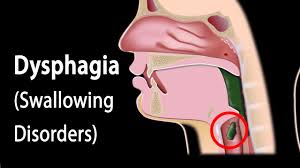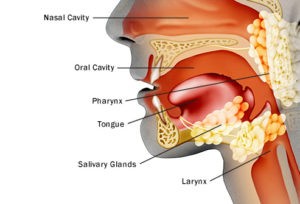
Diagnosed with Cancer? Your two greatest challenges are understanding cancer and understanding possible side effects from chemo and radiation. Knowledge is Power!
Learn about conventional, complementary, and integrative therapies.
Dealing with treatment side effects? Learn about evidence-based therapies to alleviate your symptoms.
Click the orange button to the right to learn more.
- You are here:
- Home »
- Blog »
- side effects ID and prevention »
- Relapsed Oral Squamous Cell Carcinoma- Prognosis, Therapies
Relapsed Oral Squamous Cell Carcinoma- Prognosis, Therapies

“Oral squamous cell carcinoma (OSCC) is a common malignant tumor of the head and neck, and recurrence is an important prognostic factor in patients with OSCC.
Dear Cancer Coach, I have oral squamous cell carcinoma of the neck and back of my tongue. I had an operation that removed the cancert in October 2017, but a year later the oral squamous cell carcinoma has come back and worse. I have been trying to do what I can with natural supplements.
I am scheduled to go in for radiation and chemo in 3 weeks but I really do not want to go that route. Darryl
Hi Darryl,
I am sorry to learn of your Oral Squamous Cell Carcinoma. As you can read below, the risk of recurrance for your cancer is about 33%. Your time from diagnosis to relapse was just about the median time of 14 months.
According to the article below, the fact that your OSCC has relapsed reduces your five-year survival average significantly. That is an average and must be taken with a huge grain of salt. Meaning, your prognosis largely depends on 1) if your OSCC has spread to your lymph nodes and then 2) those therapies that you undergo from here on out.
Consider both conventional therapies such as chemo and radiation as well as evidence-based non-conventional therapies. Consider a therapy plan that also takes into account possible side effects such as xerostomia and dysphagia.
If you are not happy with the published five-year average survival rate then I encourage you to undergo not only radiation and chemo but integrative and complementary shown to reduce your risk of side effects as well as enhance your conventional therapy (enhance your chemo and radiation).
Grape seed extract, for example, is one of those evidence-based therapies that is cited as being cytoxic to OSCC. When I was first diagnosed (with a different cancer from yours) I underwent radiation to my neck which resulted in two side effects called dysphagia and xerostomia (difficulty swallowing and dry mouth respectively). I can recommed several evidence-based but non-conventional therapies to help manage these side effects if you would like.
Do you know if your OSCC is “locoregional” meaning it has spread to your lymph nodes? Has your oncologist mentioned what type of chemotherapy he/she would use?
David Emerson
- Cancer Survivor
- Cancer Coach
- Director PeopleBeatingCancer
Recommended Reading:
The recurrence and survival of oral squamous cell carcinoma: a report of 275 cases
“Oral squamous cell carcinoma (OSCC) is a common malignant tumor of the head and neck, and recurrence is an important prognostic factor in patients with OSCC. We explored the factors associated with recurrence of OSCC and analyzed the survival of patients after recurrence…
The prognosis of patients after recurrence was analyzed with the Kaplan-Meier method and log-rank test. The recurrence rate was 32.7%. The recurrence time ranged from 2 to 96 months, with a median of 14 months…
Oral squamous cell carcinoma (OSCC) is the most common malignant tumor of the head and neck, and its incidence has increased in recent years[1]. Surgery is the preferred treatment of OSCC. Despite great progress in chemotherapy, radiotherapy, and targeted therapy in the last three decades, the prognosis of OSCC is poor due to aggressive local invasion and metastasis, leading to recurrence. Thus, OSCC is still a challenging disease to treat in the field of head and neck cancer. Recurrence is an important prognostic factor in patients with OSCC. Camisasca et al.[2] have reported that the 5-year survival rate was 92% in OSCC patients without recurrence and 30% in patients with recurrence (P < 0.001, log-rank test).
The median survival was 76.8 months in patients without recurrence and 42.5 months in patients with recurrence (P < 0.001, log-rank test). Lindenblatt et al.[3] have reported that recurrence affected the 5-year survival rate and disease-free survival of patients with OSCC.
Postoperative tumor recurrence leads to a poor prognosis and a poor quality of life. Identifying factors that affect the recurrence of OSCC to reduce postoperative recurrence is an emerging issue in clinic.”


